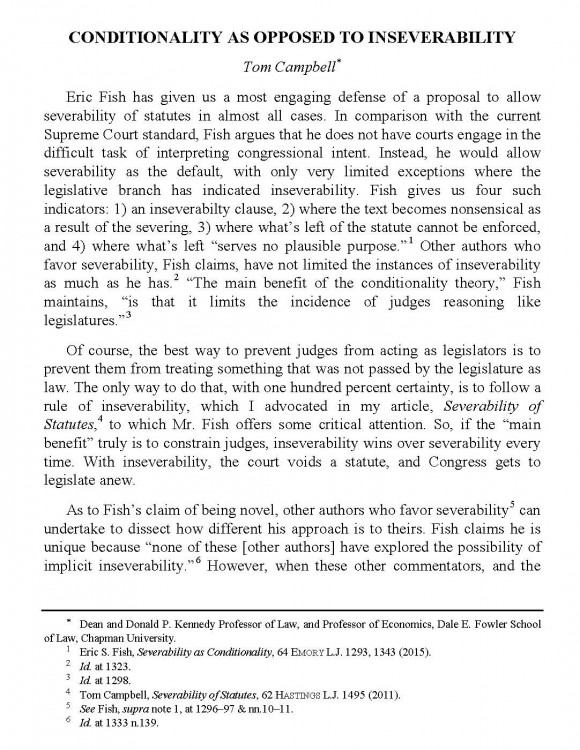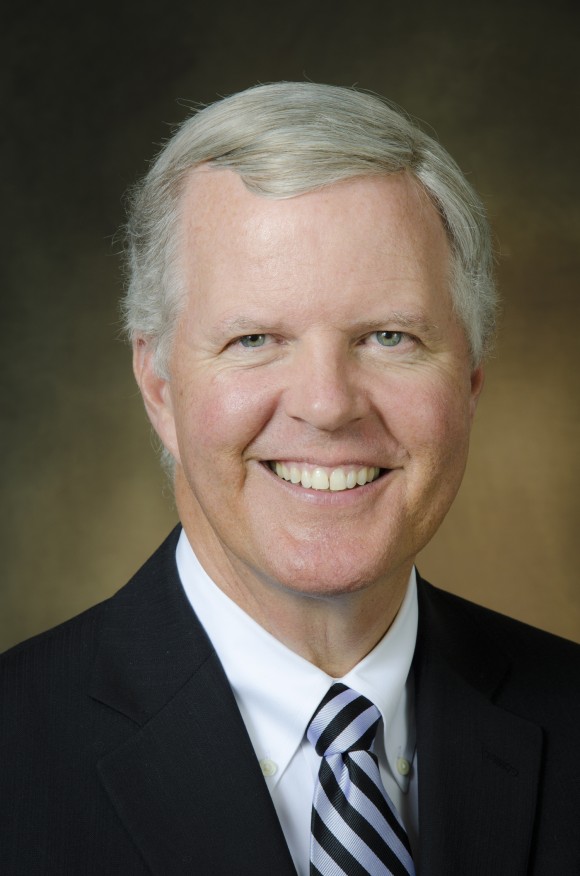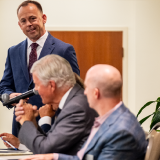Dean Tom Campbell publishes “Conditionality as Opposed to Inseverability” in response to Emory Law Journal article
May 27, 2015

Chapman University Dale E. Fowler School of Law Dean Tom Campbell was invited by the editors of
Emory Law Journal
to write a response to an article by Eric Fish, “Severability as Conditionality,” regarding what courts should do when part of a statute is held unconstitutional. Fish argues that the rest of the statute should almost always be allowed to continue. In his response, entitled “
Conditionality as Opposed to Inseverability
,” Campbell rebuts that the rest should never be allowed to continue. Campbell bases his view on the fact that the Constitution requires two houses of Congress to agree, and the President to sign (or the two houses to pass over the President’s veto) for a text to be considered law. Cutting out part and assuming the rest is law violates that rule. It results in a set of words becoming law that was not the subject of agreement between the two houses and the President. Campbell uses statistical evidence to show the burden on Congress to re-pass laws when parts are held unconstitutional is not great. Unintended consequences of allowing parts of laws to continue when other parts are struck down include the federal campaign finance laws. Originally planned as a limit on expenditures as well as contributions, the provisions of federal law capping expenditures were struck down. The result is an outcome no one intended: the wealthy can spend whatever they wish, but candidates of modest means are effectively handicapped by the limit on how much they can raise from others.

Dean Campbell
was appointed dean of Fowler School of Law in February, 2011. He came to Chapman University in January 2009 as a visiting Presidential Fellow and Fletcher Jones Distinguished Visiting Professor of Law. Prior to joining Chapman, he was the Bank of America Dean and Professor of Business from 2002 to 2008 at the Haas School of Business at the University of Southern California, Berkeley, where, during his tenure, the business school’s Wall Street Journal national ranking improved from 15th to second. Campbell was a professor of law at Stanford University from 1987-2002; associate professor at Stanford, 1983-1987; a member of the United States Congress from 1989-1993 and 1995-2001; a member of the California State Senate from 1993-1995; and the director of the California Department of Finance from 2004-2005. He has a B.A., M.A., and Ph.D. in economics from the University of Chicago, and a JD, magna cum laude, from Harvard Law School, where he also served as a member of the board of editors of the Harvard Law Review. He was a law clerk to United States Supreme Court Justice Byron White, and to US Court of Appeals Judge George E. MacKinnon; a White House Fellow; executive assistant to the Deputy Attorney General, Department of Justice; and, director of the Bureau of Competition at the Federal Trade Commission. His principal area of academic work is in the application of economics to legal questions.
